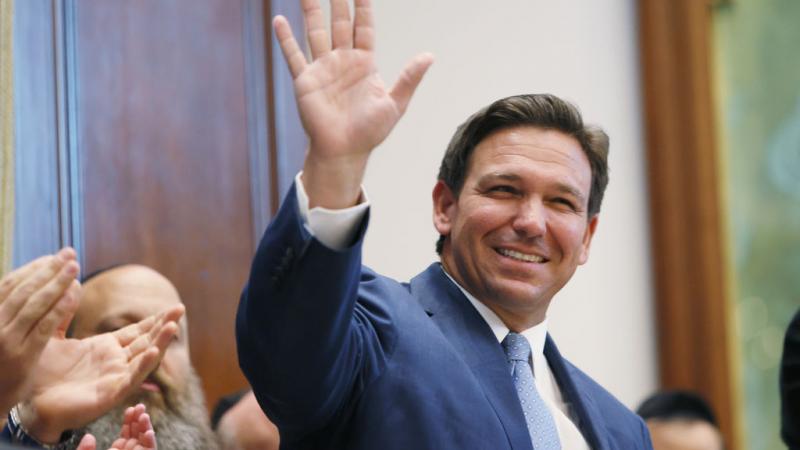Pandemic unemployment benefits system is facilitating skyrocketing fraud, experts say
Last year's expansion of eligibility for jobless benefits to self-employed created "once in a lifetime opportunity for every scammer, fraudster and thief in the world," said identity theft expert in Indiana AG's office.
Unemployment fraud continues to rise during the coronavirus pandemic, according to several state-level officials and experts on identity theft.
The experts said that the weekly federal unemployment aid that began in March of last year is a magnet for fraudsters domestic and foreign. President Biden's $1.9 trillion American Rescue Plan continues a $300 weekly added federal payment on top of state benefits through September.
The decision Congress made to allow independent contractors to collect jobless benefits for the first time "created a once in a lifetime opportunity for every scammer, fraudster and thief in the world, and they've jumped at the chance to take advantage of that opportunity," said Douglas Swetnam, section chief of the data privacy & identity theft unit in the Indiana attorney general's office.
The spike in fraudulent activity during the pandemic has been unprecedented, Swetnam said Monday at a House Ways and Means Committee minority roundtable entitled "$60 Billion and Counting: The Consequences of Unchecked Pandemic Unemployment Fraud."
"In Indiana, my section experienced a 1,500% increase in identify theft fraud reports in 2020," said Swetnam. "We are on track to set a new record for 2021."
Amy Simon, former chief of staff for employment and training administration at the Department of Labor, said the design of the federal pandemic unemployment benefit system "facilitated fraud," partly because it allowed "self-certification" from applicants to qualify for the weekly payments.
"I just need to check a box and say this thing happened to me, so in some sense the statutory design of the program facilitated fraud," she said.
Eva Velasquez, CEO of the Identity Theft Resource Center, said that unemployment fraud has been the category with the highest number of victims among the incoming calls to her organization during the pandemic.
"We saw a 4,800% increase, I'm not misspeaking, that's a 4,800% increase in just that case type," she said. "We're on pace to pass our 2020 numbers before the end of the second quarter this year."
Velasquez said identify theft connected to unemployment benefits has not subsided at all.
"If anything, we're seeing it increase," she said.
Referring to the "shocking" 4,800% increase reported by Velasquez, Republican Rep. Vern Buchanan of Florida said he "can't imagine anybody losing that kind of money, if it was run by a company or anything else, you'd be out of business — it's sickening."
Swetnam said states were not ready to handle the deluge of pandemic jobless claims, which were opened up to new categories of workers, such as self-employed individuals, with the adoption of enhanced federal benefits in 2020. Fraudsters often use personal information from individuals who were victims of data breaches to submit fraudulent claims, he explained.
"It is much easier to stop the fraud before it happens than to try to chase it down and claw it back, so most states did not have systems set up for a lot of pieces of the [March 2020] CARES Act and ours included," said Swetnam.
States "just weren't ready for the kind of onslaught that they had and fraudsters from all over the place," he continued, emphasizing that states should use additional fraud prevention measures for unemployment claims.
"Some of the things that these prevention systems can do, for instance, they'll look at the IP address of the applicant to see if it makes sense or it matches the people who are supposedly signing up," he said. "If the person is supposed to be from Indiana and the IP address shows Nigeria, that's a good clue that there's a problem."
The sources of the unemployment fraud are from out of state in the vast majority of cases, according to Swetnam.
"We see a fair amount that's coming from international sources," he said, specifically naming Nigeria, Jamaica and Russia.
Swetnam said the FBI's identify fraud task force and the Department of Labor are overwhelmed and unable to keep up with the volume of fraud cases.
"We are finding when we offer, 'Are there places we can send our fraud cases?' The answer is, 'No we don't have any capacity,'" he said. "It's a real problem. There just aren't enough law enforcement resources in place to pursue all the fraud cases."
Michael Rodgers, director of policy and public affairs in the Ohio Attorney General's Office, said his office is limited in the action it can take against fraudsters.
"The states really aren't equipped to deal with fraud on an international basis and dealing with criminal elements, so we're really looking to the Department of Justice on those issues," he said. "The scope of the fraud is so overwhelming, it's really hard, it's been difficult for law enforcement to get their hands on it at this point."
Pete Eskew, senior vice president at ID.me, warned states that "knowledge-based questions" are no longer sufficient anti-fraud measures when vetting unemployment claims and blocking identify thieves. He said fraudsters typically know the answers to those questions with stolen information.
He suggested that states implement anti-fraud identity measures such as requiring unemployment applicants to provide photo identification as a way to pass a biometric test.
"You can't do that if you aren't that individual," he said, adding that his company's technology can detect legitimate photos versus altered ones.















